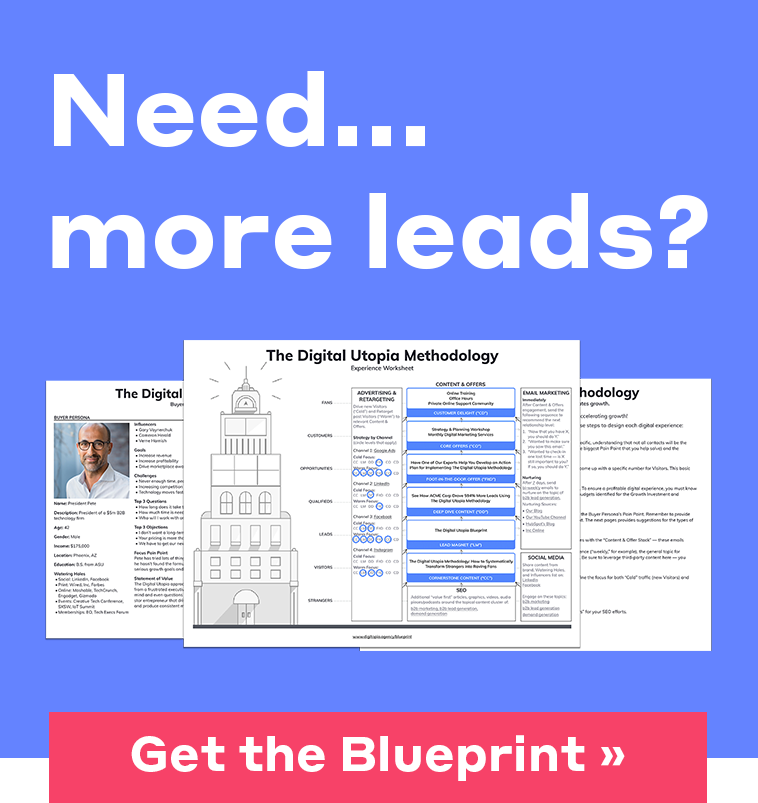What is a CRM, and How CRM Can Increase Sales?
by Kendra Uminger | Updated Nov 4, 2021
Did you know that a good customer relationship management (CRM) system can increase your sales by 29%?
That’s right...managing customer relationships is good for business.
So what is a CRM exactly?
CRM stands for “customer relationship management,” and the term “CRM” is often used to describe the software used for customer relationship management.
Basically, a CRM is software that allows you to track all of your lead and customer data in one place.
Not only does a CRM support alignment between your marketing, sales, and service teams, it also creates a seamless experience for your future customers.
CRMs may not be right for every organization. However, if your business
- Is B2B and needs to track longer sales cycles, cross-sells, and upsells OR
- Is B2C but has a more considered sales cycle (like real estate, jewelry, home improvement, etc.)
...then you can benefit from the adoption of a CRM.
Why?
Because customers are becoming increasingly fed up with impersonal interactions and communications.
They do not understand nor care that they may have spoken to multiple people within your organization - all with varying levels of understanding about the context of the relationship or their specific needs.
From the client or prospect's perspective, they are interacting with a singular entity: your business.
A successful company is one that builds strong relationships with its customers. If you’re regularly misplacing your customers’ information (or not recording it at all), then you’re telling them, in no uncertain terms, that you don’t really care about their business. That’s a relationship killer.
That’s where a CRM comes in.
- Everyone in your organization can view a customer’s journey - from the content they’ve consumed to the emails they’ve sent and received
- A good CRM can integrate with your other software - like your Content Management System (CMS) or your customer service ticketing system
- Your CRM can automate follow-up procedures, create tasks for salespeople, and much more
- CRMs are scaleable, and important customer or prospect information doesn’t get lost when employees leave
CRMs don’t just make your life easier. As I mentioned earlier, CRMs increase sales. Adopting a CRM can also shorten the sales cycle by up to 14% AND increases sales team productivity by 34%.
As with most things, when managed properly, there are numerous benefits. If not managed properly, the bottlenecks and hurdles can quickly drag do your team's productivity and effectiveness. When properly used and managed, a CRM affects your bottom line in a positive way, even with its up-front costs. But that’s not the only perk. CRMs also create alignment between your marketing, sales, and service teams.
With CRMs like HubSpot, marketing activities get logged seamlessly to a contact record. So when a prospect visits a bunch of pages on your website, checks out your blog, and then subscribes to it, all of their online activity from before they filled out a form gets logged to their contact record.
When marketing sends them nurturing emails, all of that activity gets logged as well.
Finally, when the lead is warmed up and ready to speak to a salesperson, that salesperson can utilize the CRM to see every page that prospect has visited, every CTA they’ve clicked, every email they’ve opened...even the emails they’ve ignored.
That creates a seamless experience for your future customer and allows the salesperson to engage their prospect in a meaningful and personalized way!
Once your sales team converts that prospect into a customer - the CRM’s job is still not done.
HubSpot and other CRMs offer service-specific hubs that allow you to keep close tabs on the health of your relationship with your customer, all without having to manually input or track down data.
Imagine your customer is experiencing an issue and decides to engage in a live chat on your website. That live chat gets synced right over to their contact record in the CRM, and now your service team knows everything about this customer since the first time they visited your site.
Again, a CRM is a win-win-win-win for your customers and your marketing, sales, and service teams.
As a Diamond tiered HubSpot Solutions Partner, we are partial to HubSpot's CRM which has a free version of their CRM if you are interested. If you don't currently have a CRM or are interested in moving to a different CRM, you can explore our HubSpot CRM Setup to see a full breakdown of features and benefits.








